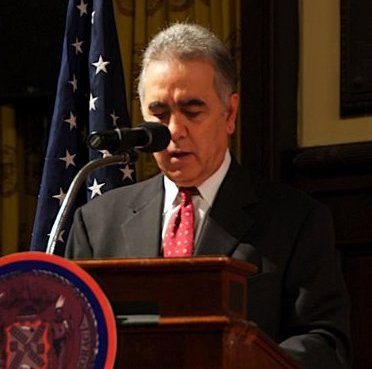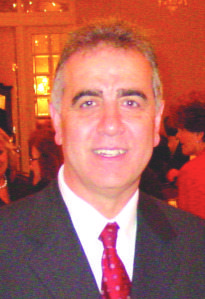The Turkish Sabah newspaper published last week the following disturbing news: “Australian FM: Armenian Case not Genocide.”
Sabah described the events that led to its nefarious headline. Gunay Evinch, board member and past president of the Assembly of Turkish American Associations (ATAA), had recently visited Australia to brief local Turkish groups on the Movsesian lawsuit. He told them that “the United States Supreme Court let stand a 9th Circuit Court of Appeals’ decision invalidating a California law that had defined the Armenian case as genocide, because it was US federal policy not to define the Armenian case as genocide.”
Sabah also reported that Evinch’s visit was “a part of a broader Anglo-Turkish Diaspora Cooperation Program in which Turks in the United States, Canada, United Kingdom, Australia and New Jersey (sic) share best practices based on a common jurisprudential and political heritage.”
Following Evinch’s advice, Ertunc Ozen, President of Australian Turkish Advocacy Alliance, wrote to Australia’s Foreign Minister Julie Bishop on May 5, “expressing concern at motions passed by the parliament of New South Wales in May 2013 regarding Turkey and the fate of various communities of the Ottoman Empire during and after World War I.”
Foreign Minister Bishop wrote to Ozen on June 4: “The Australian Government acknowledges the devastating effects which the tragic events at the end of the Ottoman Empire have had on later generations, and on their identity, heritage and culture.” Astonishingly, she added: “We do not, however, recognize these events as ‘genocide.’ Australian states and territories have no constitutional role in the formulation of Australian foreign policy. While respecting the rights of individuals and groups to have strong views on the matter, the long-standing and clear approach of the Australian Government has been not to become involved in this sensitive debate.”
The Foreign Minister is wrong on three counts: 1) She erred in stating that Australia does not recognize the Armenian Genocide. While the Australian government prefers not to use the term genocide in order not to antagonize Turkey, no other official has ever stated that it was not genocide; 2) She incorrectly wrote that the Australian states that recognized the Armenian Genocide were formulating foreign policy. These states had simply acknowledged a historical fact; and 3) She contradicted herself by stating that the Australian Government does not get involved “in this sensitive debate,” yet she did permit herself to get involved by stating that it was not genocide!
Vache Kahramanian, Executive Director of the Armenian National Committee of Australia, immediately dispatched a strongly-worded letter to the Foreign Minister, calling her ‘misguided statement’ ‘deeply insulting and hurtful to the Armenian-Australian community.’ He also characterized Bishop’s views as ‘intolerable,’ ‘inexcusable,’ ‘a grave offense,’ and ‘a disservice to all Australians.’ Kahramanian justifiably wondered, “How can Australia’s moral conscience become so corrupted?”
ANC-Australia’s Executive Director reminded the Foreign Minister that her statement was in stark contrast to “the views held by many senior ministers in the current government. As recently as April 2014, Australia’s Treasurer, the Hon. Joe Hockey MP, issued an official statement on the 99th anniversary commemoration of the Armenian Genocide marking April 24 as the day ‘we gather to remember the 1.5 million people who perished in the genocide.’ Ministers Turnbull, Morrison, along with ranking members from Labor, the Greens, minor parties and Independents have called on the Australian Parliament to officially recognise the events of 1915 as genocide. Australia’s Prime Minister, Tony Abbott, during his years as Opposition Leader, issued an annual statement referring to the Armenian Genocide with no qualifiers or euphemisms.”
Kahramanian also told the Foreign Minister: “By denying the Armenian Genocide you are also denying Australia’s very own history. Located within Australia’s National Archives are countless numbers of testimonies by ANZAC prisoners of war who were held captive in the Ottoman Empire…. These testimonies vividly recall the suffering and annihilation of the Armenian people.”
ANC-Australia Chairman Greg Soghomonian urged the Foreign Minister to “immediately reverse this critical error of judgment,” and requested a meeting with her.
I suggest that Australian-Armenians ask Prime Minister Tony Abbott whether the Foreign Minister had cleared her deeply offensive letter with him beforehand. If she had not, the ANC-Australia should demand her immediate dismissal. ANC should ask all three Australian state parliaments that have recognized the Armenian Genocide to adopt a new resolution condemning Foreign Minister Bishop’s denialist stand and urging the Prime Minister to fire her!



